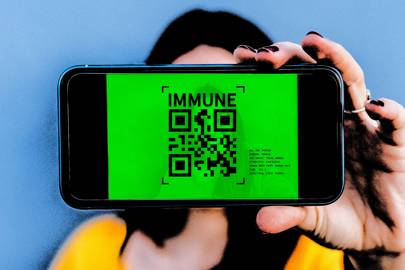 |
If you’ve had Covid-19, an immunity passport could be your ticket out of lockdown but even companies designing such systems aren’t sure it’s an idea that will or should ever be widely used.
An immunity passport or health certificate is a way of proving to others your boss, an airline, or a bouncer at a bar that you have antibodies against the coronavirus that causes Covid-19.
It could be a piece of paper, a QR code or a colour code on an app, but regardless of the format, it aims to show you aren’t at risk of spreading infection.
However, the World Health Organisation (WHO) warned in April against immunity passports on the grounds that we don’t yet know how immunity works with Covid-19.
It seems that having had the disease means it’s likely that you won’t catch it again, but it remains unclear exactly how long that protection lasts or how strong it will be. The science is still, distinctly, undecided. Plus, we don’t yet have readily available, proven antibody tests.
“The WHO has said very clearly that the science is not there,” says Imogen Parker, head of policy at the Ada Lovelace Institute.
The idea of a digital immunity passport or certificate also raises security and privacy concerns, not dissimilar to those around contact tracing apps.
And, the system raises the spectre of a two-tier society, with those thought to be immune carrying on with life as normal while the rest remain in various states of lockdown.
No comments:
Post a Comment